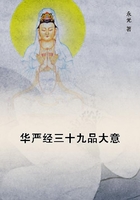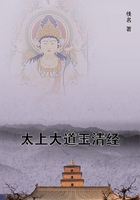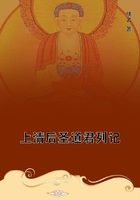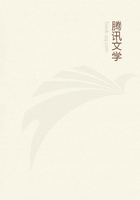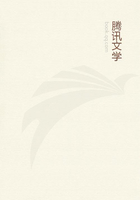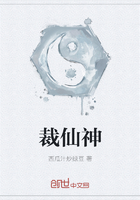In regard to their religion, nations, like individuals, seem singularly averse to practising what they have preached. Whether it be that his self-constructed idols prove to the maker too suggestive of his own intellectual chisel to deceive him for long, or whether sacred soil, like less hallowed ground, becomes after a time incapable of responding to repeated sowings of the same seed, certain it is that in spiritual matters most peoples have grown out of conceit with their own conceptions. An individual may cling with a certain sentiment to the religion of his mother, but nations have shown anything but a foolish fondness for the sacred superstitions of their great-grandfathers. To the charm of creation succeeds invariably the bitter-sweet after-taste of criticism, and man would not be the progressive animal he is if he long remained in love with his own productions.
What his future will be is too engrossing a subject, and one too deeply shrouded in mystery, not to be constantly pictured anew.
No wonder that the consideration at that country toward which mankind is ever being hastened should prove as absorbing to fancy as contemplated earthly journeys proverbially are. Few people but have laid out skeleton tours through its ideal regions, and perhaps, as in the mapping beforehand of merely mundane travels, one element of attraction has always consisted in the possible revision of one's routes.
Besides, there is a fascination about the foreign merely because it is such. Distance lends enchantment to the views of others, and never more so than when those views are religious visions.
An enthusiast has certainly a greater chance of being taken for a god among a people who do not know him intimately as a man. So with his doctrines. The imported is apt to seem more important than the home-made; as the far-off bewitches more easily than the near. But just as castles in the air do not commonly become the property of their builders, so mansions in the skies almost as frequently have failed of direct inheritance. Rather strikingly has this proved the case with what are to-day the two most powerful religions of the world,--Buddhism and Christianity. Neither is now the belief of its founder's people. What was Aryan-born has become Turanian-bred, and what was Semitic by conception is at present Aryan by adoption.
The possibilities of another's hereafter look so much rosier than the limitations of one's own present!
Few pastimes are more delightful than tossing pebbles into some still, dark pool, and watching the ripples that rise responsive, as they run in ever widening circles to the shore. Most of us have felt its fascination second only to that of the dotted spiral of the skipping-stone, a fascination not outgrown with years. There is something singularly attractive in the subtle force that for a moment sways each particle only to pass on to the next, a motion mysterious in its immateriality. Some such pleasure must be theirs who have thrown their thoughts into the hearts of men, and seen them spread in waves of feeling, whose sphere time widens through the world. For like the mobile water is the mind of man,--quick to catch emotions, quick to transmit them. Of all waves of feeling, this is not the least true of religious ones, that, starting from their birthplace, pass out to stir others, who have but humanity in common with those who professed them first. Like the ripples in the pool, they leave their initial converts to sink back again into comparative quiescence, as they advance to throw into sudden tremors hordes of outer barbarians. In both of the great religions in question this wave propagation has been most marked, only the direction it took differed. Christianity went westward; Buddhism travelled east. Proselytes in Asia Minor, Greece, and Italy find counterparts in Eastern India, Burmah, and Thibet. Eventually the taught surpassed their teachers both in zeal and numbers. Jerusalem and Benares at last gave place to Rome and Lassa as sacerdotal centres. Still the movement journeyed on. Popes and Lhamas remained where their predecessors had founded sees, but the tide of belief surged past them in its irresistible advance. Farther yet from where each faith began are to be found to-day the greater part of its adherents. The home that the Western hemisphere seems to promise to the one, the extreme Orient affords the other. As Roman Catholicism now looks to America for its strength, so Buddhism to-day finds its worshippers chiefly in China and Japan.
But though the Japanese may be said to be all Buddhists, Buddhist is by no means all that they are. At the time of their adoption of the great Indian faith, the Japanese were already in possession of a system of superstition which has held its own to this day. In fact, as the state religion of the land, it has just experienced a revival, a regalvanizing of its old-time energy, at the hands of some of the native archaeologists. Its sacred mirror, held up to Nature, has been burnished anew. Formerly this body of belief was the national faith, the Mikado, the direct descendant of the early gods, being its head on earth. His reinstatement to temporal power formed a very fitting first step toward reinvesting the cult with its former prestige; a curious instance, indeed, of a religious revival due to archaeological, not to religious zeal.


